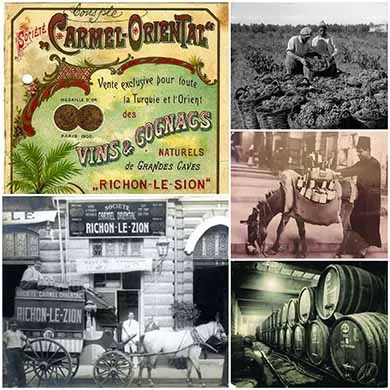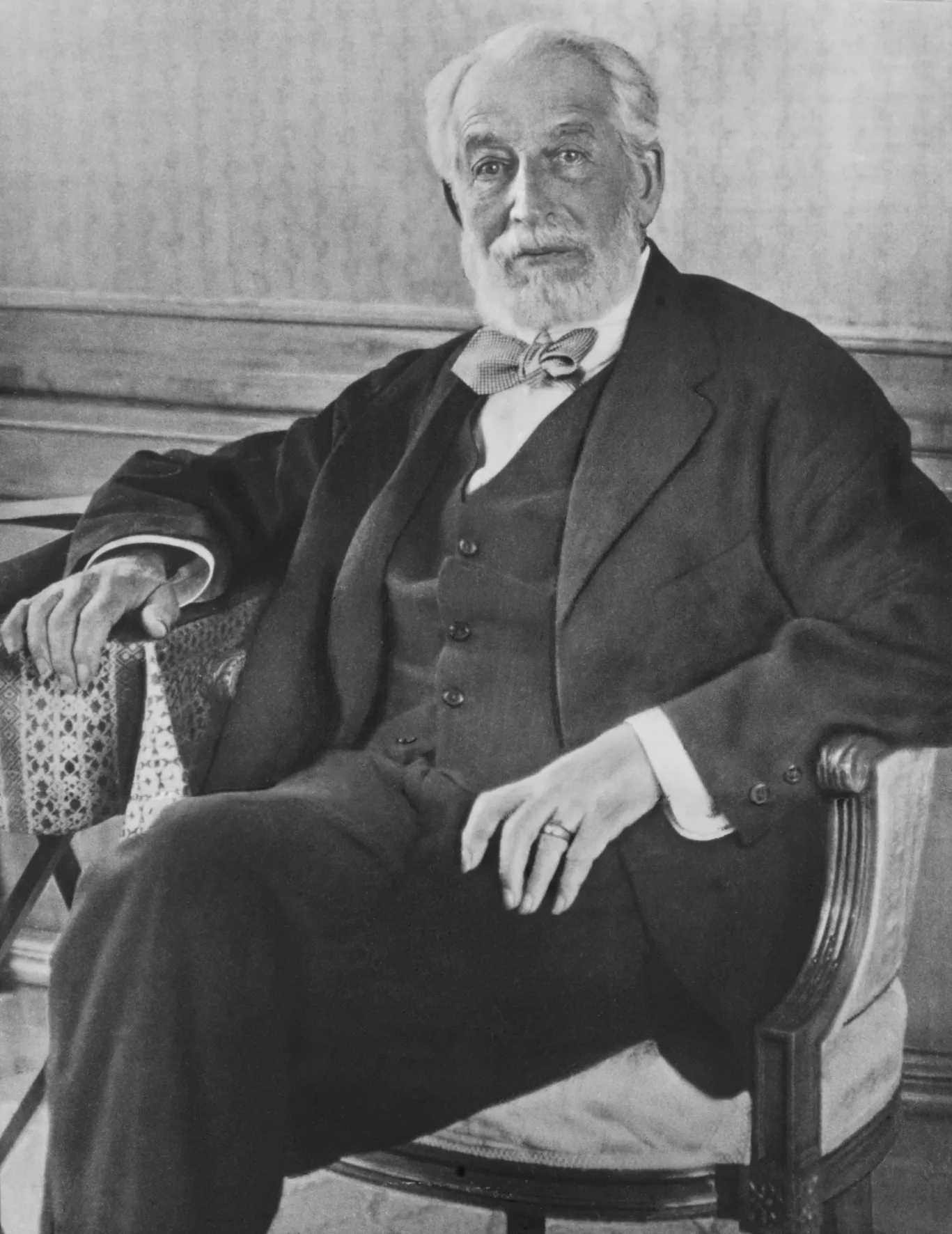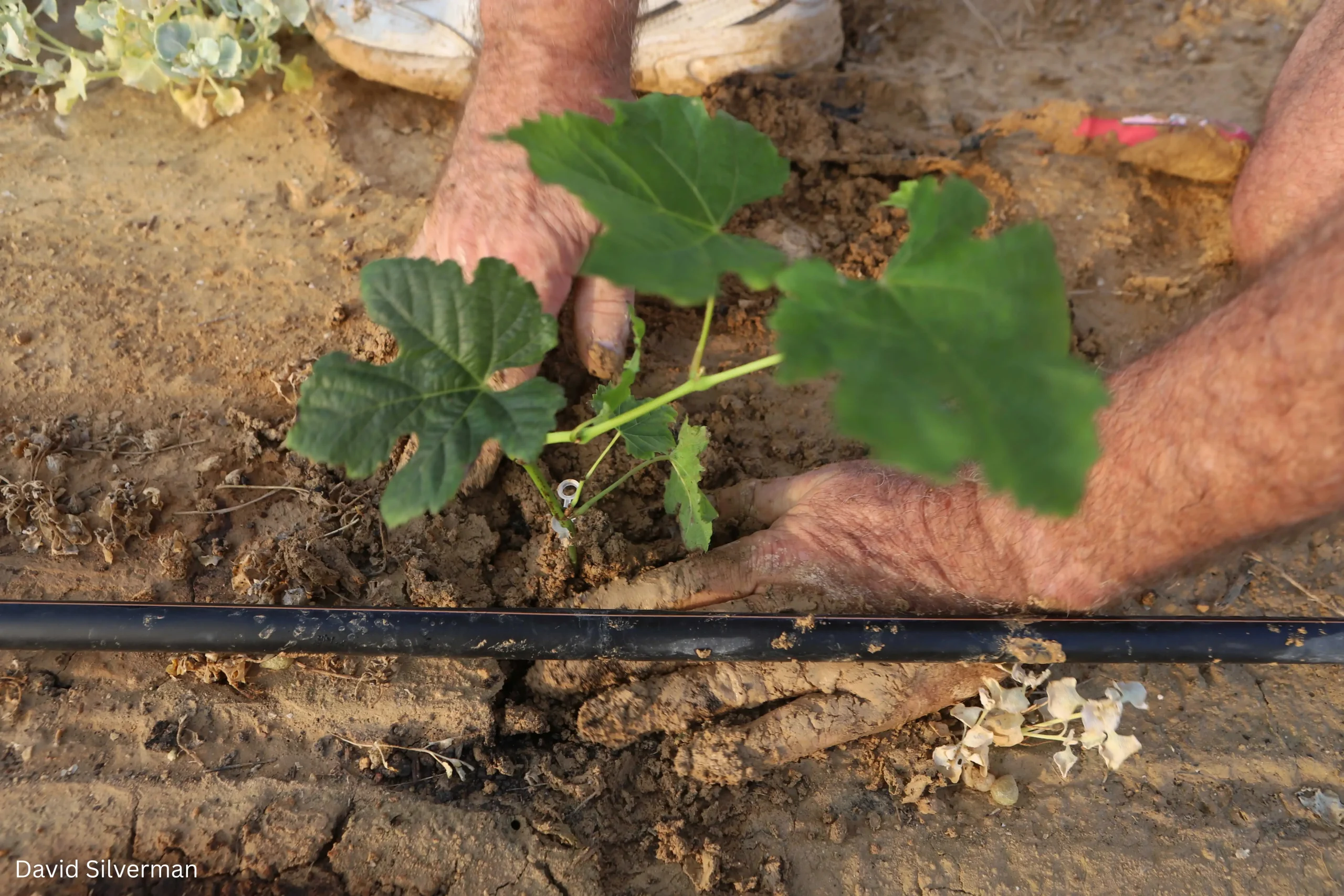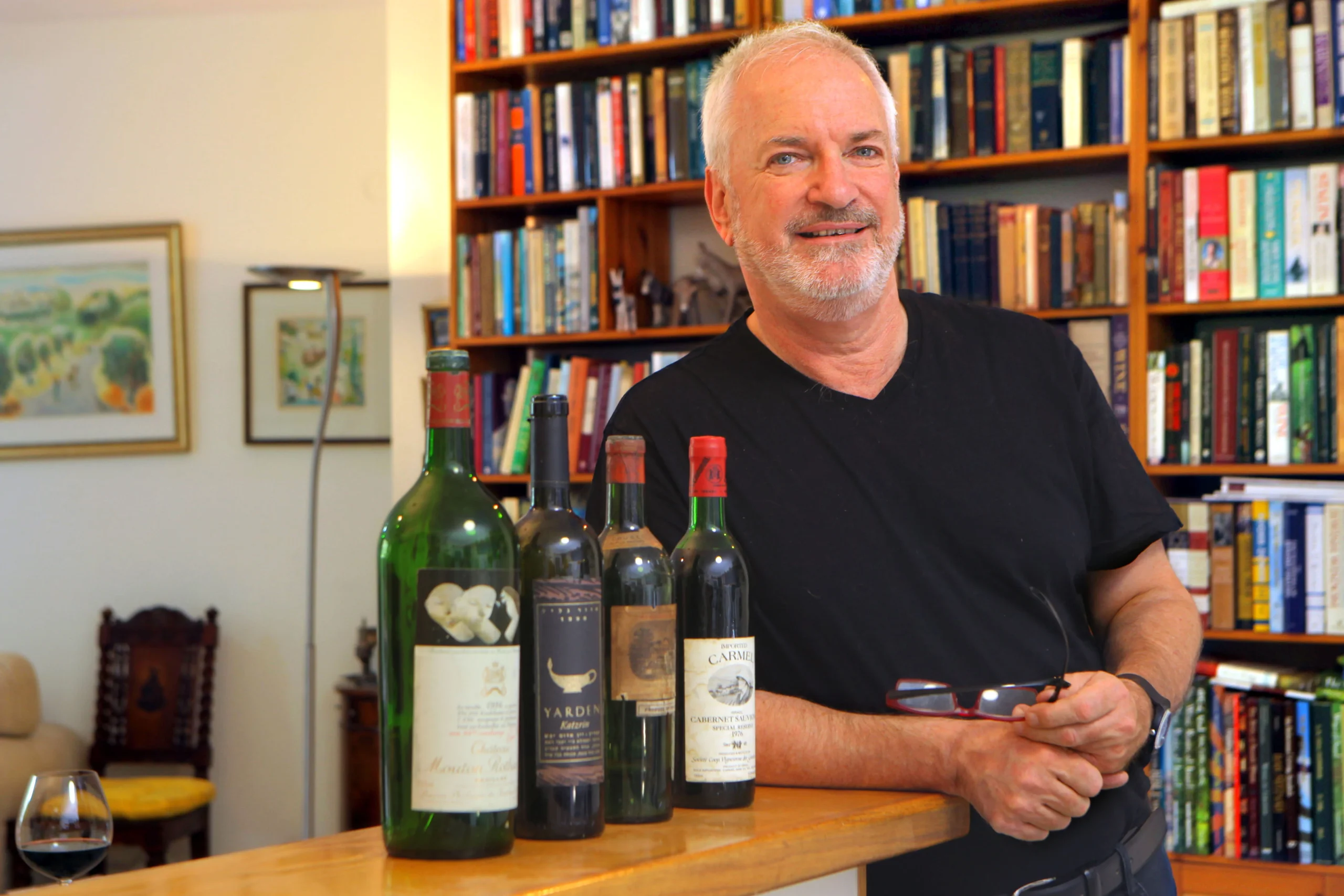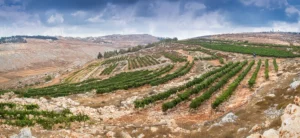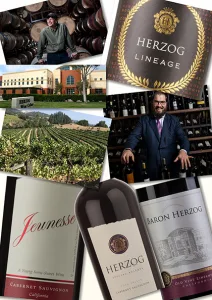Don’t assume that everything you read about a winery is historically correct. Closer examination shows how wineries are prepared to have a very flexible interpretation of the facts, to suit the imagination of a particular marketing department of the time. It is rather like rewriting history in reverse. However, rather than being outright lies, most of these are based on some form of factual information. Of course, if repeated long and often enough, the story becomes the new reality.
Check yourself on the following simple statements that relate to the history of certain wineries.
Carmel Winery was founded in 1882. True or false? According to the company history and ex-logo, Carmel, the historic winery of Israel, was founded in 1882. Actually, this is not true. Their first winery was only built in 1890. The Carmel name was used in 1896 for the first time, but this was not even for the winery, but for an independent export marketing company called Carmel Wine Co. The name was only used for the first time in the local market in 1902, then it was referred to as Carmel Oriental. (Carmel Oriental serviced the Ottoman Empire and Carmel Wine Co. worked with Europe, Great Britain and America.) In 1906 the Agudat Hacormim (the winegrowers cooperative) was formed, known as Societe Cooperative Vigneronnes des Grandes Caves. So how do they justify using 1882 as the founding date? Well there is a tenuous connection. The winery villages of Rishon Le Zion and Zichron Ya’acov were founded in 1882. The first three experimental vineyards were planted in 1882 and Baron Rothschild did sent an agronomist to survey Palestine in 1882. On these meagre threads the white lie was first told and over time became the fact by years of repetition. By the way, the Golan Heights Winery was established in 1983. However, the first vineyards were planted in 1976. According to the Carmel rationale, it could have been said the winery was founded in 1976!
Barkan Winery was founded in 1899. True or false? False. For years it was written that Israel’s largest winery, was founded in 1990. Recently they have a new story, that they have roots in the 19th century. They do this by putting Barkan at the head of a chain of events that really did happen. The story began in 1899 when Shlomo Friedman founded a winery in Petach Tikvah. In 1964 the winery was sold to Tnuva and became known as Friedman Tnuva. In 1971 it was sold to Stock WEST and renamed Harmartef. In 1988 they planned to build a new winery on the Barkan Industrial Estate near Ariel, but went bankrupt. Two years later Barkan rose from the ashes. Does this mean Barkan was founded in 1990 or 1899? The bald truth is clear, but in a leap of imagination, the creative marketer could argue the other way. The winery is now owned by Tempo Beverages and is the largest winery in Israel.
Segal Wines was founded in 1787 or 1925. True or false? False. The Segal family winery was founded in 1950 in Ramle (and was originally called Askalon Wines.) The Segal family were distillers in White Russia from 1787. In 1925 two distilling brothers made aliya and were involved in setting up the distillery at Sarona. The Segal family sold out to Barkan in 2001. Does this mean the winery was founded in 1787 or 1925? Neither! The long history in spirits and distilling is relevant to the family story, but not to when they started the winery.
Tishbi Winery Vintners Since 1882. True of false? False. This has been written on bottles. The Tishbi Winery was founded in 1985, from a family of vineyard growers. I can’t guarantee the date they began as growers here. I have heard 1889 mentioned, but it was not 1882. I suppose they want to give the impression they have been working in wine since the beginning of Rothschild’s investment in vineyards, and certainly no-one can take away their long history as grape growers. However, this does not change the date the winery was founded.
A vintner is someone who works in the wine trade or makes wine. A grape grower, is not a vintner by most definitions, unless he is the one making the wine.
Arza Winery was founded in 1847. True or false? False. It is documented that the Shor family founded its family winery in 1848. The other Shor family wineries talk about 1848, and this is what appeared on an old family logo. When the 1848 Winery was founded (see below), Arza Winery suddenly decided they were founded a year earlier. Remember we are talking about one family member, Rabbi Yitzhak Shor and the single winery he founded. It should not be complicated enough for misinterpretation.
However as with all these cases, there is a basis of truth that provides an excuse in the eyes of those making the decision. In this instance, it is agreed the date is 1848. But if you convert the date according to the Jewish calendar, which is what they would have then used, then it corresponds to the year 1847-1848! Hence the use of 1847 may be justified! It’s confusing though and does not help credibility. Wineries do not generally have different dates of being established depending on which family member you ask!
Furthermore, their new winery, or brand, Hayotzer, adopts the 1847 date as its founding date too. Hayotzer has a very experienced, good winemaker and the new initiative is to raise the image a notch or two. However, claiming the history is a little like Michael and Tim Mondavi saying their current new wineries were founded in 1966, the year when Robert Mondavi Winery was established. Of course, they would not do it, but in Israel anything goes! It’s not by the book, and I am not saying it is wrong. It is just a certain ‘interpretation.’
1848 Winery was founded in 1848. True or false? False. The 1848 Winery was founded in 2006 by Yossi Shor of the aforementioned Shor family. The winery was founded to create a quality driven winery, and bring the family wine interests into the 21st century. They employed a French born & trained winemaker, bought state-of-the art equipment and employed modern technology in pursuit of quality. The family has made wine since 1848, and 1848 Winery celebrates 170 years of winemaking, but it is really a new winery.
Jerusalem Winery was founded in the Old City of Jerusalem. True or false? False. Shimshon Winery was founded in 1951 by Yona Mendelson and Tzipora Shor, of the Shor family which has roots going back to 1848 in the Old City. The winery moved to Atarot in Jerusalem in 1976. In 2006 it was sold and renamed Jerusalem Wineries. So, when was the winery founded, 1848, 1951, 1976 or 2006? According to Israeli flexibility of interpretation anything is possible, though it is true that the Shor-Shimshon-Jerusalem story does go back to the Old City.
I used to work with Yatir Winery. It was founded in 2000. Yet the first vineyard in Ramat Arad was planted in 1988, the first in Yatir Forest was planted in 1996-7, the first wine released was from the 2001 vintage, the name Yatir was only decided upon in 2003 and the wines were first released in 2004. There is no standard…any of these could have been used as a founding date. It is just important to be loyal to the facts as they are.
Teperberg Winery was the first family winery established in modern times. True or false? False. Ginio Winery was the first recorded family winery in 1840, and the Shor Winery was the first family winery that is still existing. The Teperberg family started as distributors in 1852, and founded their winery in 1870. For much of their early history they were far more up front as distributors and retailers. The winery also went bankrupt in the 1930’s and only reopened after the founding of the State. However, all is well that ends well. It is now Israel’s largest family owned winery.
Wineries regularly make statements in slogans or advertisements without checking thoroughly enough. We have two wineries that claim they are the largest in the country, two wineries that claim they are the biggest exporters, one that claims they have won more medals than any others and another that claims to have the highest scores with Robert Parker. There are others that wildly over exaggerate their production figures. My recommendation is to know the truth, don’t make wild claims of being ‘the best’, ‘the biggest’ or ‘the most’. It is dangerous game to play and it always looks stupid to someone else who knows the truth or has checked to find the grand statement not correct.
As far as creative histories are concerned, take refuge in the facts. The truth is always the best story. If the story has become the new reality, as with Carmel, it is important to tell the whole story so at least there is some explanation. It appears there are lies, damned lies, statistics and some wobbly historical statements by certain wineries that don’t stand up to scrutiny, but undeniably they all get out gaol because there is a basis of truth with each. You just need to be very flexible in your interpretation of the facts to see it!
Adam Montefiore has advanced Israeli wines for over thirty years and is the wine writer for the Jerusalem Post. www.adammontefiore.com


